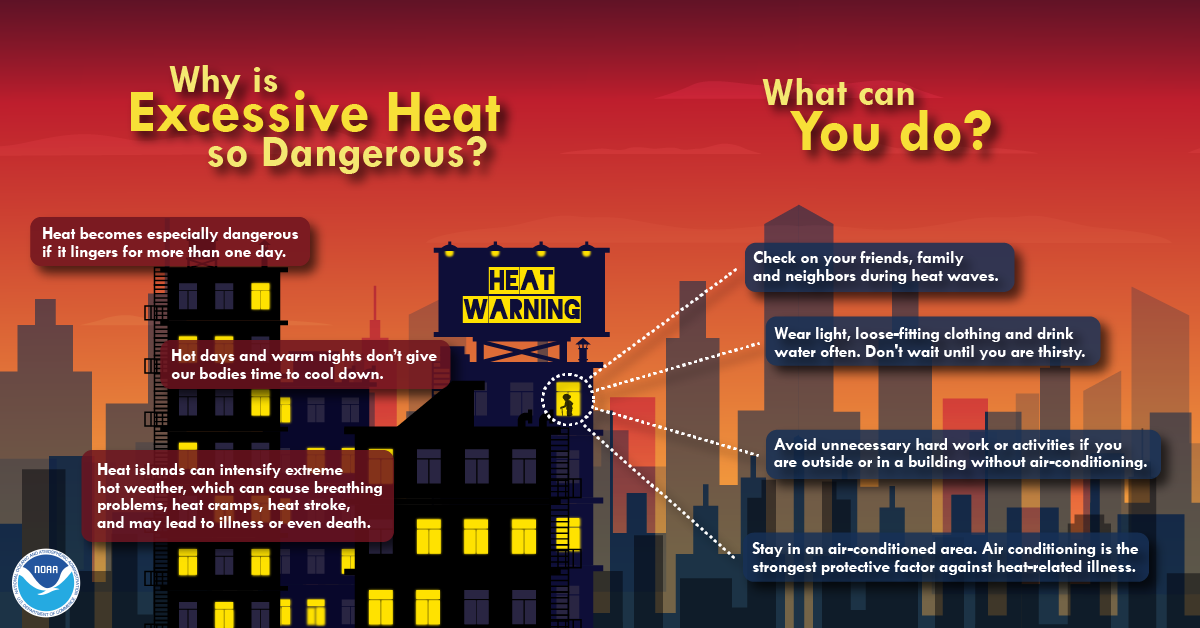
Arctic air lingers for the east, however, winds will slowly subside and a slow moderating trend starts during the week. Moisture continues to provide rainfall and higher elevation snow for the Pacific Northwest, northern California and northern Rockies through Monday. For the State of Hawaii, dangerous surf conditions with strong winds and heavy rainfall will impact the islands through Monday. Read More >
Grand Junction, CO
Weather Forecast Office
Dangerously Hot Temperatures Across Portions of Southeast Utah This Weekend
A strong ridge of high pressure will continue to build overhead through the weekend. Near record heat will be possible with highs climbing into the triple digits in the lower valleys across eastern Utah. Overnight lows will struggle to reach the 60s this weekend, making it difficult to recover from the excessive daytime heat. Therefore, a Heat Advisory remains in effect for portions of southeast Utah this weekend through 8 PM MDT Monday. This includes Arches and Canyonlands National Parks. Please take extra precautions if you work or spend time outside. When possible, reschedule strenuous activities, and know the signs and symptoms of heat exhaustion and heat stroke. Even though only southeast Utah is under a Heat Advisory, portions of west-central and southwest Colorado will also experience hot daytime temperatures in the triple digits with near record heat with a bit cooler nights with lows in the 60s.

For more heat safety tips, please visit www.weather.gov/heat.


Hazards
Detailed Hazards Viewer
National Briefing
Outlooks
Transportation Decision Support
Winter Storm Severity Index
Forecasts
Aviation Weather
Fire Weather
Forecast Discussion
Forecast Points
Local Area
Severe Weather
Soaring Forecast
Winter Weather
Hydrology
Recreational River Report
River Forecast
Weather Safety
Preparedness
NOAA Weather Radio
StormReady
SkyWarn
US Dept of Commerce
National Oceanic and Atmospheric Administration
National Weather Service
Grand Junction, CO
2844 Aviators Way
Grand Junction, CO 81506-8644
970-243-7007
Comments? Questions? Please Contact Us.

